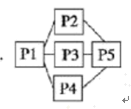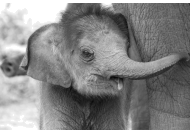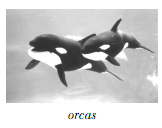1 . Cold weather has a great effect on how our minds and our bodies work. Maybe that is why there are so many expressions that use the word “cold”.
For example, people who show no human emotions or feelings are said to be cold-blooded. Cold can affect other parts of the body. But the expression “get cold feet” has nothing to do with cold or your feet. The expression means being afraid to do something you have decided to do. For example, you agree to be CEO of a company. But then you learn that all the other officers have resigned (辞职), and all the work of the company will be your responsibility (责任). You are likely to get cold feet about being CEO when you understand the situation.
The expression “give someone the cold shoulder” probably comes from the physical act of turning your back toward someone, instead of speaking to him face to face. You may give the cold shoulder to a friend who has not kept a promise he made to you, or to someone who has lied about you to others.
“A cold fish” is not a fish. It is a person. But it is a person who is unemotional and shows no love or warmth. A cold fish does not offer much of himself to anyone. Someone who is a cold fish could be cold-hearted. He or she will never feel sorry for those in bad situation.
“Out in the cold” means not getting something that everybody else got. A person might say that everybody but him got a pay raise — he was left out in the cold. And it is not a pleasant place to be.
1. If you get cold feet, this means that .| A.you feel brave to do something | B.you feel too nervous to do something |
| C.you feel too cold to do something | D.you feel very angry about doing something |
| A.Henry was treated politely when he asked Mary to see a film |
| B.Henry was afraid to invite Mary to see a film with him |
| C.Mary didn’t care about Henry’s invitation and didn’t plan to go with him |
| D.Mary behaved unfriendly because she didn’t like to talk with Henry face toface |
| A.Opinions about cold weather. | B.Expressions connected with “cold”. |
| C.Relation between cold and body. | D.Examples of people who have a cold. |
A. | B. | C. | D. |
2 . Lifelong learners never think of themselves as the greatest experts in anything. They continue to lean and bring a great deal to the groups they belong to. What is a lifelong learner like? Here are some of their main characteristics (特征).
● They are knowledge seekers. They are always searching for much information on a topic they’re interested in and looking for new experience or opportunities (机会) to improve their knowledge or skills.
● They are social and self-directed learners. They like taking different courses and taking part in discussions around subjects they are interested in. ________ They also know their own learning styles, and their strengths and weaknesses. They can plan and organize their own learning.
● They are critical (批判性的) thinkers. They always use a lot of ways to analyze (分析) and synthesize (合成) information. From their research they judge the information to see if it is useful for the question at hand.
● They are problem solvers. They will meet different problems while learning. However, they usually regard problems as challenges and life experiences and try to stand above them.
1. What does the underlined “knowledge seekers” mean?| A.Persons who are testing knowledge. | B.Persons who are teaching knowledge. |
| C.Persons whose jobs are inventing knowledge. | D.Persons who are looking for knowledge. |
| A.They invite each other to parties. | B.They learn both from and with others. |
| C.They learn from plants and animals. | D.They don’t like learning on society. |
| A.You ask others for help when you can’t correct your own mistakes. |
| B.You believe in the information you get and use it in your study. |
| C.You correct mistakes someone makes as soon as you find them. |
| D.You always use a lot of ways to analyze and synthesize information. |
A. | B. |
C. | D. |
| A.To introduce some of the main characteristics lifelong learners have. |
| B.To explain the relationship between common people and lifelong learners. |
| C.To suggest lifelong learners become experts. |
| D.To describe the height, clothes and hairstyle of a lifelong learner. |

But there are a few exceptions, primarily among mammals (哺乳动物) that live in close social groups. Canadian zoologist Anne Innis Dagg described groups of langur monkeys in India in which older females lived with their daughters and grandchildren. The grandmother langurs have a particular job: they protect the group's babies against hurt from humans, dogs and other monkeys. Some female langurs even give their own grandchildren special treatment, cleaning their fur and stepping in when they play too roughly with other young.

Many whale species, too, travel with their families,including both grandmothers and grandcalves. In groups of sperm whales, according to Dagg, old females help babysit the group's young while their mothers dive (潜水) for food. Orca grandmothers often lead their family members and can live for many years after they stop reproducing. In 2015, scientists suggested that these elder orcas help their grandcalves through hard times, because they remember all the best places to find food.
Female elephants rule the whole family. Calves (幼崽) are typically born into groups led by their grandmothers, who can live to around 80 years old. The female elephants form close relationships, said Lahdenperä, and raise their young together. Lahdenperä found that the calves of young mothers were eight times more likely to survive if their grandmothers lived near them than if they didn't. When the calves' mothers were older and more experienced at raising babies, this beneficial “grandmother effect” disappeared even if the actual grandmothers were still around.
It isn't very clear how elephant grandmothers help their inexperienced daughters, said Lahdenperä. It is believed that they may help nurse their grandcalves. But Lahdenperä thinks that the more likely advantage is the wisdom a grandmother elephant has got during her long lifetime.
And what about grandfathers? Studies of humans in recent years have shown that a living grandfather can improve a person's mental health and well⁃being, said Lahdenperä.
But there are signs of that in the animal kingdom, she said. Male animals seldom socialize with their own children, let alone grandchildren. “Males are usually focusing on producing their own children and aren't providing so much care,” Lahdenperä said.
1. From Paragraph 3, we know that orca grandmothers _______.
| A.die after reproducing | B.teach the young to dive for food |
| C.have rich experience | D.enjoy travelling with grandfathers |
| A.the “grandmother effect” lasts long in the animal world |
| B.grandmothers shoulder great responsibilities in their families |
| C.animal grandfathers can improve grandcalves' mental health |
| D.most species treat their grandparents like human beings do |
| A.Animal grandparents are like human grandparents |
| B.Animal grandmas are born group leaders |
| C.Are animal grandmas given enough respect? |
| D.Do any animals know their grandparents? |
4 . Could the students from less developed areas in central and western China get the same educational chances as those in big cities in the east? Could the children in poor rural (农村) areas develop as well as those in rich cities? Maybe the answers were “No” in the past. But now, China is trying to change the situation.
In order to help rural students grow taller and stronger, China’s Nutrition (营养) Improvement Program started in 2011. According to the program, a lot more money was spent improving students’ meals. More than 36 million students from 134,000 primary and junior high schools in poor rural areas have benefited from the program. They are provided with healthy food like eggs and milk from Monday to Friday at school. And the result of a survey shows that the students in those areas are much taller and stronger than before.
It is true that there were differences between less developed areas and developed areas in education before. Recently, The Guideline for Popularizing High School Education (2017-2020) has come out. According to the guideline, above 90% students from all over the country will go to high schools by 2020. What’s more, the schools in central and western areas will get more support to improve their education.
Students from rural and poor areas also get more chances to receive higher education. A special college program makes it possible for more students from those areas to go to key (重点的) colleges and universities. The number will be increased by 10% in 2017.
With the guideline and the programs, we can expect a fairer and more balanced (均衡的) education in the future.
1. The number of 134,000 in Paragraph 2 is the number of _______ in poor rural areas.| A.the key schools | B.the poor students |
| C.the key colleges and universities | D.the primary and junior high schools |
| A.逃离 | B.获益 | C.受害 | D.赚钱 |
(=Para.(自然段) 1 =Para. 2 =Para. 3 =Para. 4 =Para. 5)
| A.;; | B.;; | C.;; | D.;; |
| A.Liu Xi, a student from Chongqing, can go to any high school if she wants to |
| B.Li Mei, a student from a western rural school, can get a bag of milk every day |
| C.Hu Jia, a 12-year-old rural student, will more easily receive high school education |
| D.Han Lei, a student from Beijing, will have few chances to go to key universities |
An echo is a reflected(反射)sound. Stand in a very large, empty hall with nothing on the walls. Then shout. The sounds you make will hit the walls and come back to you. The walls reflect the sounds. These reflected sounds are called “echoes”.
We can use reflected sound to make sound travel farther. Hold a watch about fifty centimeters from your ear. You cannot hear it. The sound of the watch travels a short way in all directions. It does not travel as far as your ear. You can make it travel to your ear by using a roll of cardboard(纸板筒).
Make the roll of cardboard about fifty centimeters long. Put one end over your ear and hold the watch at the other. Now you can hear the watch because the sound has not gone in all directions. It is reflected down the roll to your ear.
A megaphone(喇叭筒)works in the same way. It makes sound travel farther. It reflects the sound into a beam which can travel a long way. In the ship, the sailor uses the megaphone to make his voice travel. Without the megaphone, his voice cannot travel far.
We use reflected sound in many ways. We use it to measure the depth of the sea, for example. Among the animals, bats and whales use reflected sound to tell them where they are and what things are near them.
1. Which is the right order of hearing our echo in a very large, empty hall?
a. We hear the reflected sound b. The sound returns to us
c. The sound hits the walls d. We make a sound
| A.c, b, a, d | B.c, a, b, d | C.d, c, b, a | D.d, b, c, a |
| A.reflected sound is useful only to blind people |
| B.people haven’t made use of reflected sound yet |
| C.bats use reflected sound to fly and get food |
| D.whales don’t use reflected sound as they live in the sea |
| A.a long piece of wood | B.a roll of cardboard |
| C.a thin thread | D.a long piece of silk |



